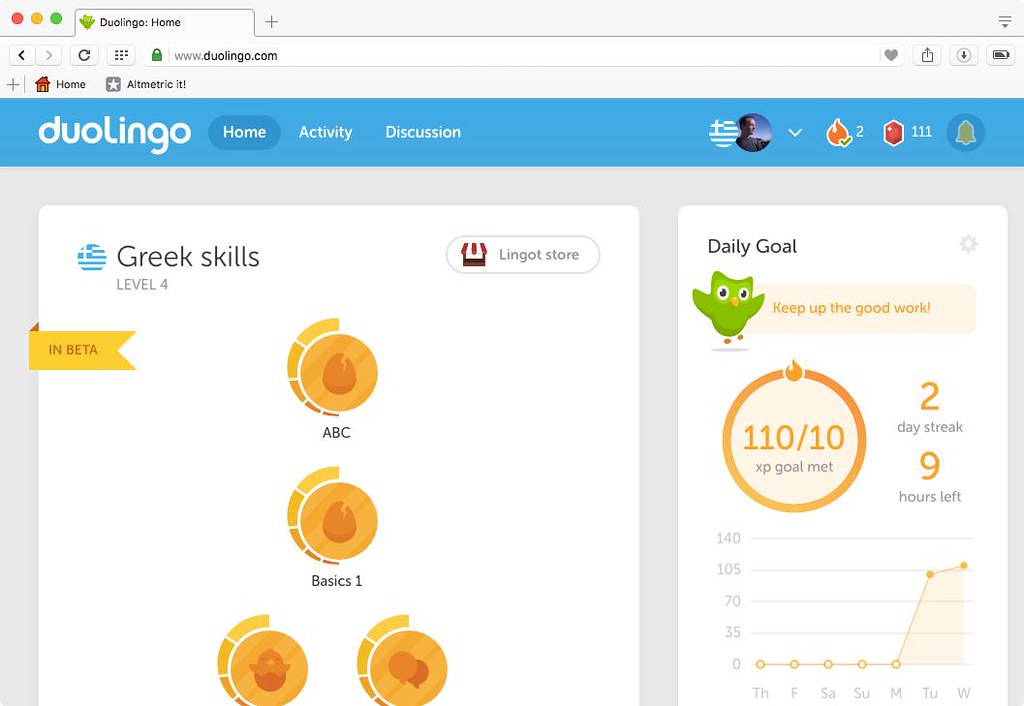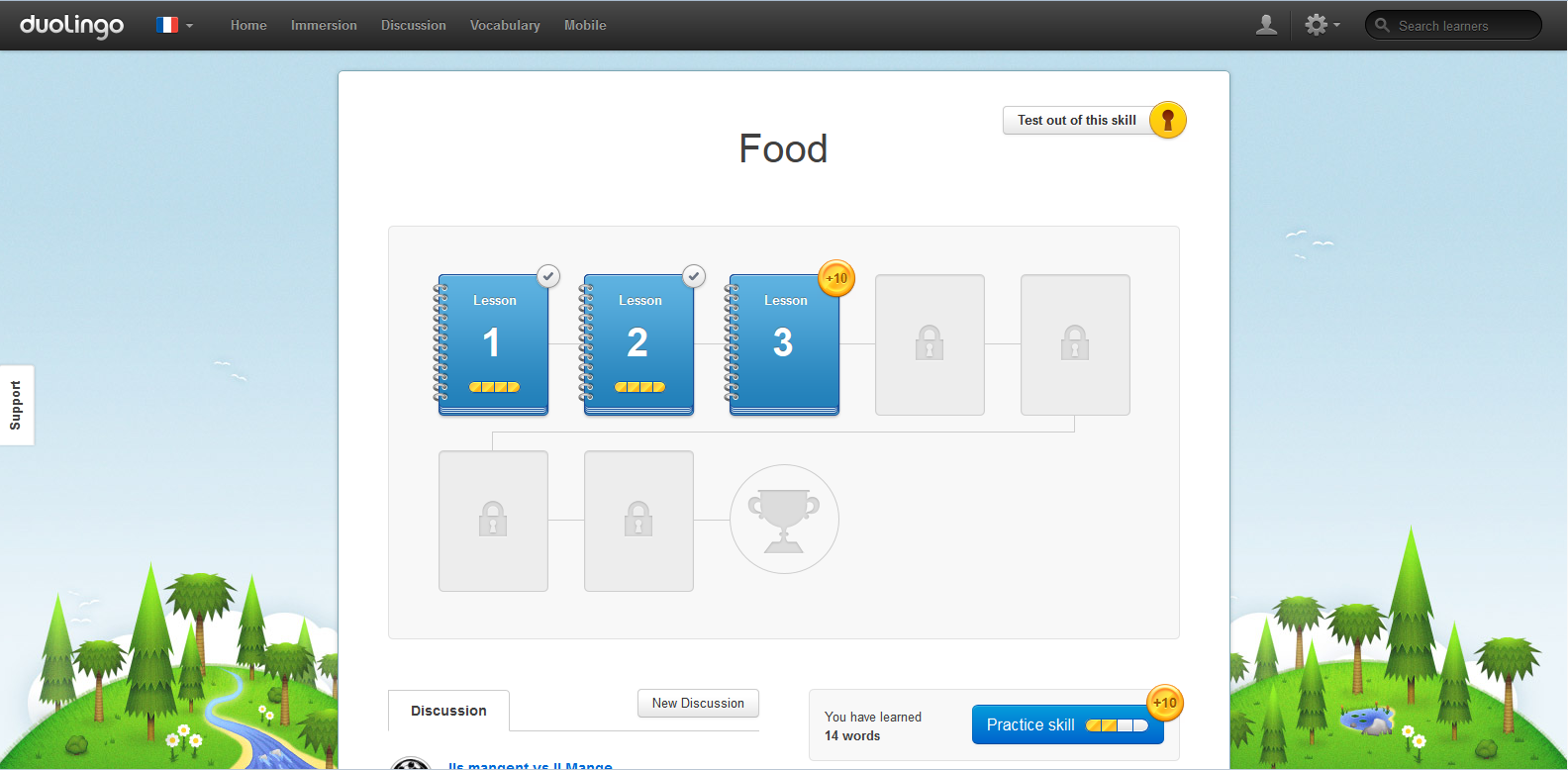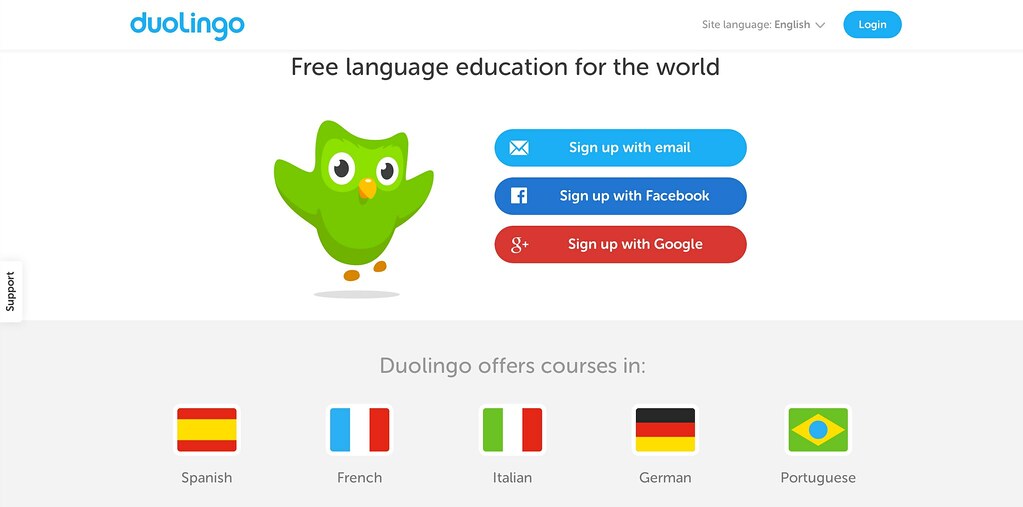Duolingo is an American platform that includes a language-learning website and mobile app, as well as a digital language-proficiency assessment exam. The company uses the freemium model. The app and the website are accessible without charge, although Duolingo also offers a premium service for a fee. Duolingo is the world’s most popular English language learning app today and highly recommended app for English beginners. As of November 2019 the language-learning website and app offer 94 different language courses in 23 languages. The app has over 300 million registered users across the world.
The project was started at the end of 2009 in Pittsburgh by Carnegie Mellon University professor Luis von Ahn (creator of reCAPTCHA) and his graduate student Severin Hacker. On October 19, 2011, during its “Early Stage Venture” stage Duolingo raised $3.3 million from a Series A first-round of funding, led by Union Square Ventures. Duolingo launched into private beta a month later on November 30, 2011, and accumulated a waiting list of more than 300,000 users. On June 19, 2012, Duolingo later launched for the general public.

On 13 November 2012, Duolingo released their iOS app through the iTunes App Store. The application is a free download and is compatible with most iPhone, iPod and iPad devices. On 29 May 2013, Duolingo released their Android app, which was downloaded about a million times in the first three weeks and quickly became the #1 education app in the Google Play store. On June 19, 2013, one year after launching for the general public, Duolingo passed 4 million users, all through word of mouth, and on November 21, 2013, Duolingo reached 15 million user.
Most language-learning features in Duolingo are free of charge, but it uses periodic advertising in both its mobile and web browser applications, which users can remove by paying a subscription fee. This feature, which is named ‘Duolingo Plus’, includes benefits such as having unlimited hearts and being able to skip levels. It originally employed a crowd sourced business model, where the content came from organizations (such as CNN and BuzzFeed) that paid Duolingo to translate it. Duolingo mimics the structure of video games in several ways in order to engage its users. It features a reward system in which users acquire “lingots”, an in-game currency that they can spend on features such as character customizations or bonus levels (both available on the mobile app only).

On public leaderboards, people can compete against their friends or see how they stack up against the rest of the world. The level system that Duolingo uses is XP (experience points), a numerical system that represents a user’s skill-level. Badges in Duolingo represent achievements that are earned from completing specific objectives or challenges.The study process in Duolinguo combines various methods such as: listening to the pronunciation, reading sentences, talking with language bots and voice recording, forming phrases by ordering words, and matching images to words.
According to educationalappstore and en.wikipedia.








